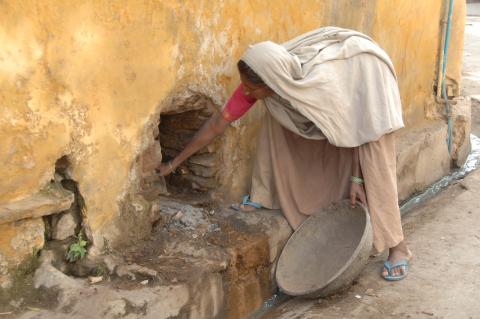Although there is sometimes legislation to prevent it, caste systems are still in place in the 21st century. In some regions of India, such concepts have become ingrained in cultures. The most discriminatory practices victimize manual scavengers, who experience lifestyles that are hard to fathom to citizens of a first-world nation.
Scavengers represent the lowest rung of the untouchables in India, a group of lower-class citizens that are legally considered equal citizens but are culturally prejudiced. Scavengers are born into a specific role: to clean latrines and collect human waste. Because of the social hierarchy imposed by regions of India, the children of scavengers are considered “agents of pollution” and are forced to continue the work of their parents.
These individuals collect excrement by hand, and earn payments as minimal as leftover food or one rupee per day. Women typically collect waste from homes, and men clean sewers and septic tanks. The conditions are unimaginable; one scavenger told TIME magazine that “the first day when I was cleaning the latrines and the drain, my foot slipped and my leg sank in the excrement up to my calf. I screamed and ran away. Then I came home and cried and cried. I knew there was only this work for me.”
Members of first-world nations look at these practices and see abomination; and yet these activities have been prevalent in India for over a thousand years. While humanity has become more progressive and egalitarian, cultural prejudices remain. Manual scavengers remain entrenched in a life that is essentially slavery, with no opportunity to improve.
The best way to help manual scavengers is to change the culture and give them opportunities. Because of the caste system, untouchables are given no chance to educate themselves and create a better standard of living. Scavengers have only one opportunity: to clean the filth of others. To grow equality in India, we as global citizens need to educate the lowest classes and provide an alternative to life as a scavenger.
India’s lack of hygienic standards has created unsafe environments in many regions of the country, especially in rural areas. In Wayanad, a section of southern India, only 35% of households had individual latrines. According to a government survey of the region in 2008, most Indians were forced to defecate in outhouses with limited sanitation or simply in open areas. Some organizations have been working to provide adequate toilet facilities that are easier to clean, particularly Sulabh International. A more developed sanitation system is one way to aid scavengers, and make manual latrine cleaning an unnecessary process.
Unfortunately, it is doubtful that a modern sanitation structure will be implemented in rural regions of India. However, improving training and education for women, who are most likely to become scavengers in rural Wayanad, may be a perfect opportunity to lift them out of the ‘untouchables’ class. Non-profit organizations that empower women and provide educational opportunities could be enormously influential.
While researching the lives of manual scavengers in India, I was struck by the horrible conditions and lack of advancement that characterizes their very existence. They work in pungent, unhygienic environments, they are openly ridiculed and discriminated against in public, and they have no alternatives to this lifestyle. While traditional culture in India is largely to blame, political and humanitarian efforts have also proved unsuccessful or inconsequential to the prevailing issue. Citizens of first-world nations can and should endeavor to support groups of people who are repressed and treated unfairly. Supporting organizations with ties to the improvement of sanitary conditions, such as Sulabh International, can make a difference. And through assistance of beneficial non-profits, like Profugo, global citizens like you can educate and train extremely impoverished individuals.
Being an informant can be an even more gratifying decision. I had never heard of manual scavengers before Profugo opened my eyes to the situation, and most people are not aware of such injustices in third-world regions like rural India. You can educate friends and family, or promote a worthwhile non-profit organization. Knowledge can be the most powerful tool against such repression.
Sources:
http://www.sulabhinternational.org/what-is-manual-scavenging/
http://time.com/3172895/dalits-sewage-untouchables-hrs-human-waste-india-caste/
https://www.hrw.org/news/2014/08/25/india-caste-forced-clean-human-waste
http://idsn.org/key-issues/manual-scavenging/
Baseline Survey of Minority Concentration Districts of India: Wayanad


Leave a Reply
You must be logged in to post a comment.